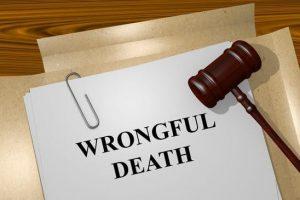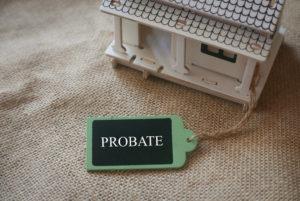
After losing a loved one through a horrific accident, you want answers. You need to understand what happened and want to hold the responsible party accountable. But how can you do that?
You can get those answers when you meet with an experienced wrongful death lawyer. Morris Bart has been helping those who have lost a loved one for decades. One of our experienced attorneys can help you reach a better understanding and receive compensation for your loss.
Some Questions You Should Ask Your Wrongful Death Lawyer
During this challenging time, you need a dependable legal team who can answer:
- What is the legal definition of wrongful death?
- Is there a time limit to file a lawsuit in the wrongful death of a loved one?
- Who can legally file a claim?
- What compensation are you entitled to?
- Will you have to go to court?
For a free legal consultation, call 800-537-8185
How to Define Wrongful Death
One way to define wrongful death is to say someone else’s wrongful act caused the death. While the intent could have been malicious intent, usually, a wrongful death comes from negligence. That negligence could come at the hands of a:
- Medical professional
- Personal aid
- Car or truck driver
- Manufacturer
- Property owner or manager
Every case is different. Set up a free initial meeting with one of our personal injury lawyers to better understand if you have a legal claim.
Are a Survival Claim and a Wrongful Death Claim the Same Thing?
No, a survival claim and wrongful death claim are not the same, though each may be filed following the wrongful death of a loved one.
In a wrongful death claim, you can seek compensation for the medical and other expenses of your loved one’s injuries. You can also seek compensation for emotional damages and the pain and suffering you and other family members have endured following the accident.
A survival claim looks for compensation on behalf of the deceased. If your loved one held on following fatal injuries for days, months, or years beyond the day of the accident, that is when you may wish to pursue a survival claim.
Click to contact our personal injury lawyers today
Is There a Statute of Limitations in Which to File a Legal Claim?
Yes. Every state is different. In Louisiana, for example, the statute of limitations is very short – only one year. Alabama allows up to two years following a wrongful death accident to file a legal claim.
Mississippi and Arkansas each give a plaintiff up to three years to file a claim. This means that you have one, two, or three years from the date of the wrongful death of your loved one to file a wrongful death lawsuit. However, there can be exceptions that only a knowledgeable attorney will know.
Who Can File a Wrongful Death Claim of a Loved One?
Who can file a wrongful death lawsuit varies from state to state. The most logical person would be a surviving spouse, but that is not always the case.
In Louisiana or Mississippi, Family Members Can File
In Louisiana, the surviving spouse and children have the right to file a claim for economic and non-economic damages. If the decedent did not have a spouse or children, other next of kin can file, including parents, siblings, and grandparents. However, if a family member does not file a claim, the estate’s executor can do so to recover economic damages.
Mississippi follows a similar concept. The spouse, children, parents, grandchildren, or siblings can file a wrongful death lawsuit. So can the executor, also known as the personal representative.
Alabama and Arkansas Only Allow an Executor to File
Alabama and Arkansas see it a bit differently. These two states each only allow the decedent’s representative to file a wrongful death legal case.
If your loved one did not appoint an executor in Arkansas, the surviving spouse, children, parents, or parents might file. In Alabama, however, if no executor was appointed, the probate court will appoint one for the estate.
With each state’s unique legalities for filing wrongful death claims, it is important to have a local attorney represent you.
What Compensation Can You Be Entitled to in a Wrongful Death Case?
While a family member may seek economic damages and non-economic damages in a wrongful death claim, an estate executor can only file to recover economic damages.
Economic Damages
Economic damages are those which entail a financial loss or support. These may include but are not limited to:
- Medical treatment
- Hospitalization
- Medical transportation
- Loss of income
- Future loss of income
- Salary for replacement child care or housekeeping
- Funeral and burial bills
Non-Economic Damages
Non-economic damages deal with anguish, pain, and suffering. Some examples include:
- Emotional suffering
- Loss of enjoyment of life
- Loss of companionship
- Loss of consortium
- Scarring and disfigurement
Will Your Case Go to Court?
While it is possible your case will go to court, most wrongful death cases are settled out of court. However, the settlement of a wrongful death case can take time.
The defendant’s side will be looking to pay as little as possible. You will be looking to receive proper compensation on behalf of your loved one and the pain and suffering you have endured.
Whether a case makes it to a courtroom is under the plaintiff’s control. If you are unhappy with the settlement process and feel the defendant is not willing to compensate you properly, you can request a court trial.
Choosing the Right Legal Team for Your Case
No amount of money can replace the loss of your loved one, but you deserve compensation in their stead and for your loss. You should contact a personal injury lawyer quickly.
If you live in Louisiana, Arkansas, Mississippi, or Alabama, Morris Bart has offices close to you. We offer a free initial consultation regarding a legal claim following a wrongful death accident. Let us lessen your burden and help you receive the justice your family deserves. Contact us today.
Questions?Call 800-537-8185
to find a Morris Bart office near you.





